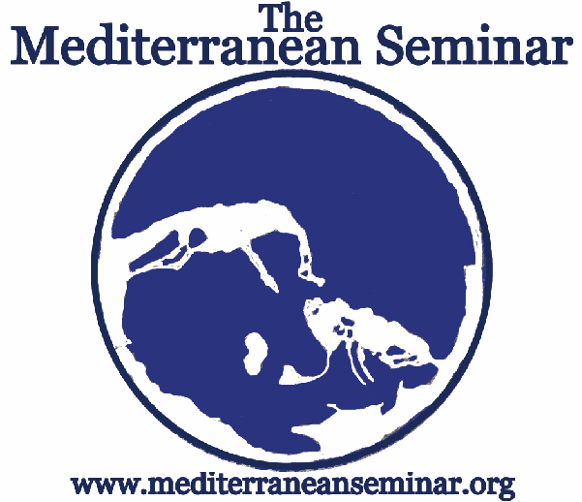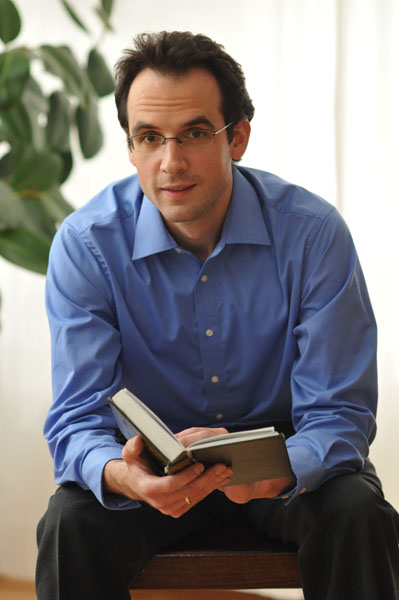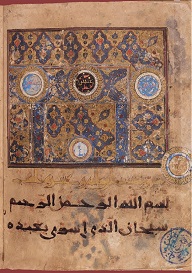Call for Papers: Pre-Modern Comparative Literary Practice in the Multilingual Islamic World(s)
A virtual conference entitled Pre-Modern Comparative Literary Practice in the Multilingual Islamic World(s) will take place July 12-24, 2021. This conference is co-organized by Huda Fakhreddine (University of Pennsylvania), David Larsen (New York University), and Hany Rashwan (University of Birmingham), and hosted by the Oxford Comparative Criticism and Translation Research Centre (OCCT), University of Oxford.
 Description: The premodern Islamic world was multilingual and multicultural, and by necessity was continually engaged in comparative critical practices. Mapping the interconnected trajectories of these practices, everywhere they arose between Urdu, Persian, Turkish, Arabic, and other language traditions of Asia and Africa, is the aim of this conference. We invite scholars to employ methodologies based on direct engagement with primary sources that negotiate the multilingual Islamic world(s) in ways that are overlooked or misunderstood by Comparative Literature.
Description: The premodern Islamic world was multilingual and multicultural, and by necessity was continually engaged in comparative critical practices. Mapping the interconnected trajectories of these practices, everywhere they arose between Urdu, Persian, Turkish, Arabic, and other language traditions of Asia and Africa, is the aim of this conference. We invite scholars to employ methodologies based on direct engagement with primary sources that negotiate the multilingual Islamic world(s) in ways that are overlooked or misunderstood by Comparative Literature.
For most of Islamic intellectual history, the literary analysis of discourse has been carried out in the domain of balāghah, and its Arabic terms—e.g., sariqah (theft, but also intertextuality), muʿāraḍah (rivalry, but also parody), muṭābaqah (correspondence, but also antithesis), muwāzanah (collation, but also comparison) etc.—signify concepts and categories that are different from those of Western criticism. Likewise, the traditions of grammar, lexicography, poetic meter, Quranic exegesis, hadith criticism, jurisprudence, theology, philosophy, and mysticism developed their own Arabophone conceptual resources, which were applied throughout the Islamic world. We invite participants to investigate the ramifications of such terms, and the consequences of their application across the multilingual Arabic world, fruitful and otherwise. Participants are invited to extend Islamicate poetics beyond Islamic traditions, and contemplate how contemporary critical theory might be enriched by comparative methods of the Islamic world. To bridge the frontier dividing modern literary theory from Islamic Studies is another aim of this conference. We mean to challenge the Eurocentrism of modern Comparative Literature as we invite dialogue across the disciplines of comparative rhetoric, poetics, philosophy, and Islamic Studies.
Topics
- Translation and non-translation in the Islamic world
- Translinguistic adaptations of genre and form
- Multilingual scholars and scholarly practice
- Nationalism and polyglossia
- Minorities, shibboleths, and Arabolects
- Multilingual lexicology and exegesis
- Catachresis and Creative Misreadings
- Textual practices, media, and reception
**Abstract Guidelines**
Abstracts (max. 400 words) should be sent in a word document, along with a short biography that contains academic affiliations and publications. Please use the IJMES transliteration system. The deadline for all submissions is November 17th, 2020. Please send the abstract to the conference’s email: premulticomparison@gmail.com
Notification of abstract acceptance is issued by December 25th, 2020.
Talks will be allotted 20 minutes for the presentation with 10 minutes for questions and answers on Zoom.
The proceeding will be co-edited by the organizers and published in early 2022 with Oxford University Press.
For more information see: https://www.occt.ox.ac.uk/pre-modern-comparative-literary-practice-multilingual-islamic-worlds
© International Qur’anic Studies Association, 2020. All rights reserved.




